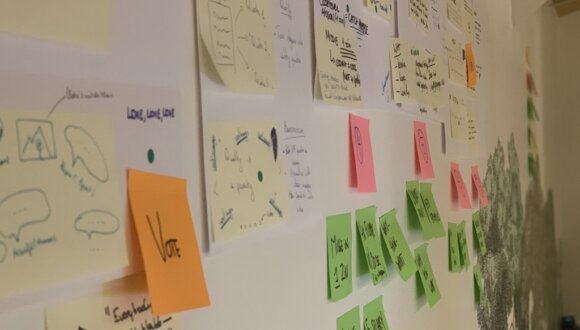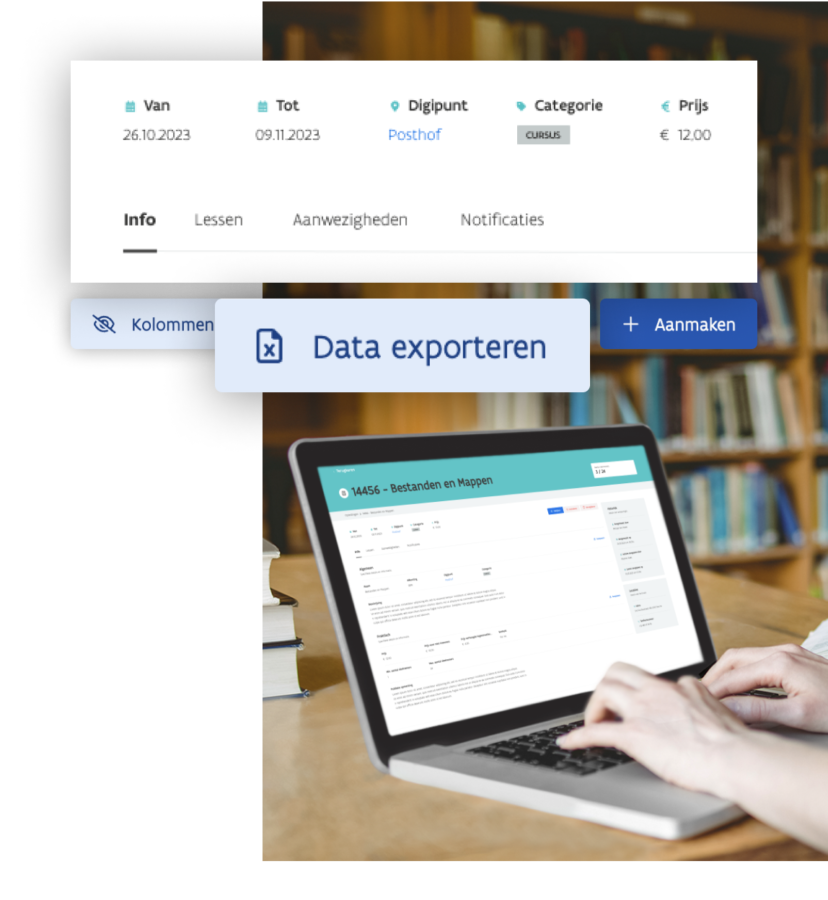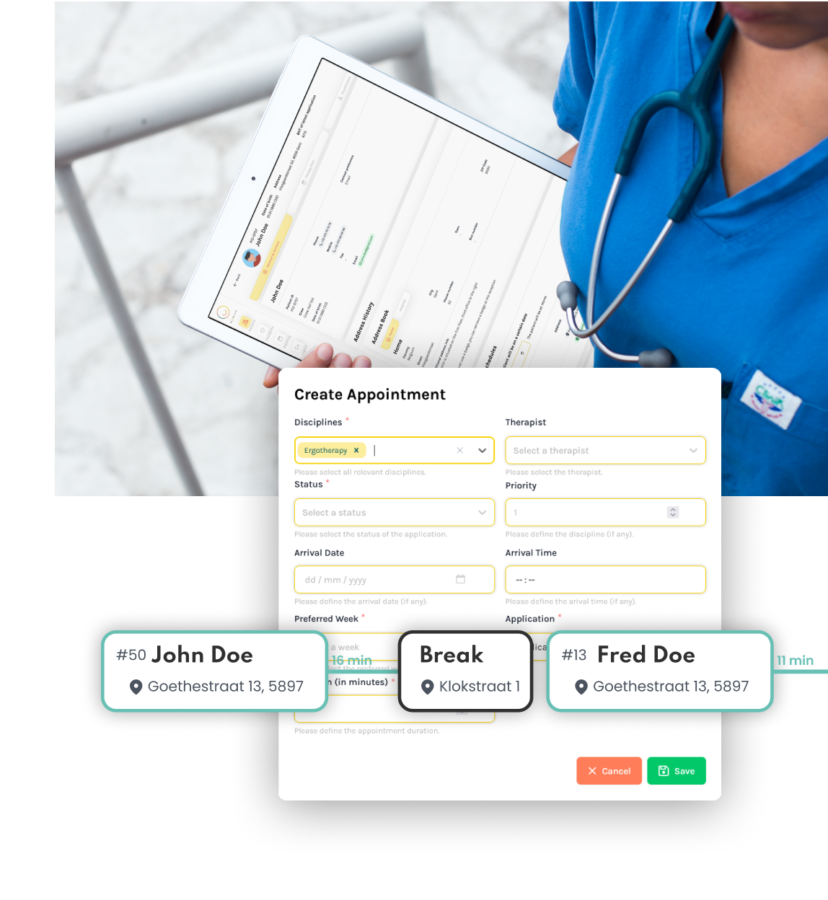Today, measuring and reporting the operation and performance of your organisation is crucial. Yet we note that reporting has become a goal or task in itself for many organisations. Often to the great frustration of those charged with this.

Management of the Flemish Digibanken with customised reporting
Since 2021, the Flemish 'Digibanken' have been helping to reduce the risk of digital exclusion for people in a vulnerable position. To streamline their operations and reporting, we developed an all-in-one management platform.







